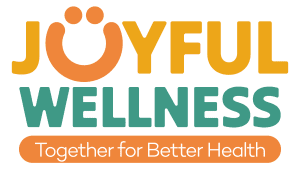From “meet-cutes” (defined by Google as “the initial encounter between two characters in a story, typically a romantic one, that is memorable and often humorous or cute”) to meeting people online, modern dating methods have changed cultural norms and mindsets when it comes to viewing sexual health.
The more accessible meeting people has become through online dating apps, the more important it is to become aware, informed, and responsible about your sexual health.
But what is sexual health?
According to the World Health Organization, “Sexual health is a state of physical, emotional, mental, and social well-being in relation to sexuality; it is not merely the absence of disease, dysfunction or infirmity. It requires a positive and respectful approach to sexuality and sexual relationships, as well as the possibility of having pleasurable and safe sexual experiences, free of coercion, discrimination, and violence.”
Why Sexual Health Matters
In order to achieve and sustain sexual health, the sexual rights of a person must be respected and fulfilled — and this starts with knowing more about it beyond the bedroom.
Disease prevention in the realm of sexual health begins with consent and open communication.
Talking openly with your partner about your sexual needs, desires, and concerns can nurture a healthier sex life.
Practicing safe sex such as using condoms and other contraceptives to prevent sexually transmitted infections (STIs) and unintended pregnancies should also be on top of an individual’s priorities when it comes to protecting and maintaining sexual health while going on dates.
A Holistic Approach to Sexual Health
However you choose to explore, express, and experience your sexuality, there’s always room for understanding the nuances of your body to ensure sexual health for your sake, and your partner’s as well.
According to Dr. Andrew F. Valdez, a board-certified urologist (for men), there’s still limited access to comprehensive sexual education and a lack of open dialogue about sexual health in the Philippines which is a cause for high STI prevalence in the country.
The 35% rise in teenage pregnancies highlights the need for improved sexual education and access to contraception as well.
Licensed physician and advocate for women’s health, Dr. Krizzle Luna, shares that cultural and religious barriers and conservative beliefs hinder open dialogue about sexual health, which in turn affects the access to healthcare services for both women and men.
Lack of government funding and resources of sexual health education limits access to the support people need in order to make better decisions.
There are many things beyond your control when it comes to what the country is facing, when it comes to sexual health. In order to face these challenges, you need to start somewhere — and you need to start from where you are.
- Schedule regular checkups with a healthcare provider if you are sexually active
- For both men and women, get vaccinated against HPV is you are under 26 years old
- Get tested regularly for STIs if you are sexually active with multiple partners
Love the body you’re in and take care of it. Maintain a healthy lifestyle through regular exercise and a balanced diet. Continue to seek verified information about your body and sexual health so you can stay on top of your health as you embrace and explore your sexuality.
Redefining Sexual Health For a New Generation
Navigating sexual health in today’s dating era means more than just swiping right — it’s about making empowered and informed decisions that protect your well-being and that of your partners.
Everyone deserves access to information, resources, and support but ultimately, building a respectful and loving relationship with your body, and an honest and open relationship with your partner is how the narrative changes for the better. With modern dating evolving faster than ever, prioritizing safety, consent, and open communication is essential.
You can enjoy the process of dating while getting to know your body’s sexual needs, but at the same this is also an opportunity for you to protect and promote open dialogue about sexual health in your community, and to inspire action within your circle. Encourage a culture where honest conversations are the norm – not the exception. Sexual health is self-care, and staying healthy is a way for you to enjoy your dating era more responsibly.
DISCLAIMER
This article provides general information and does not constitute medical advice. Consult your healthcare provider for personalized recommendations. If symptoms persist, consult your doctor.
Photo by Deon Black on Unsplash







